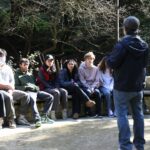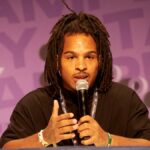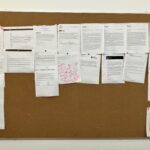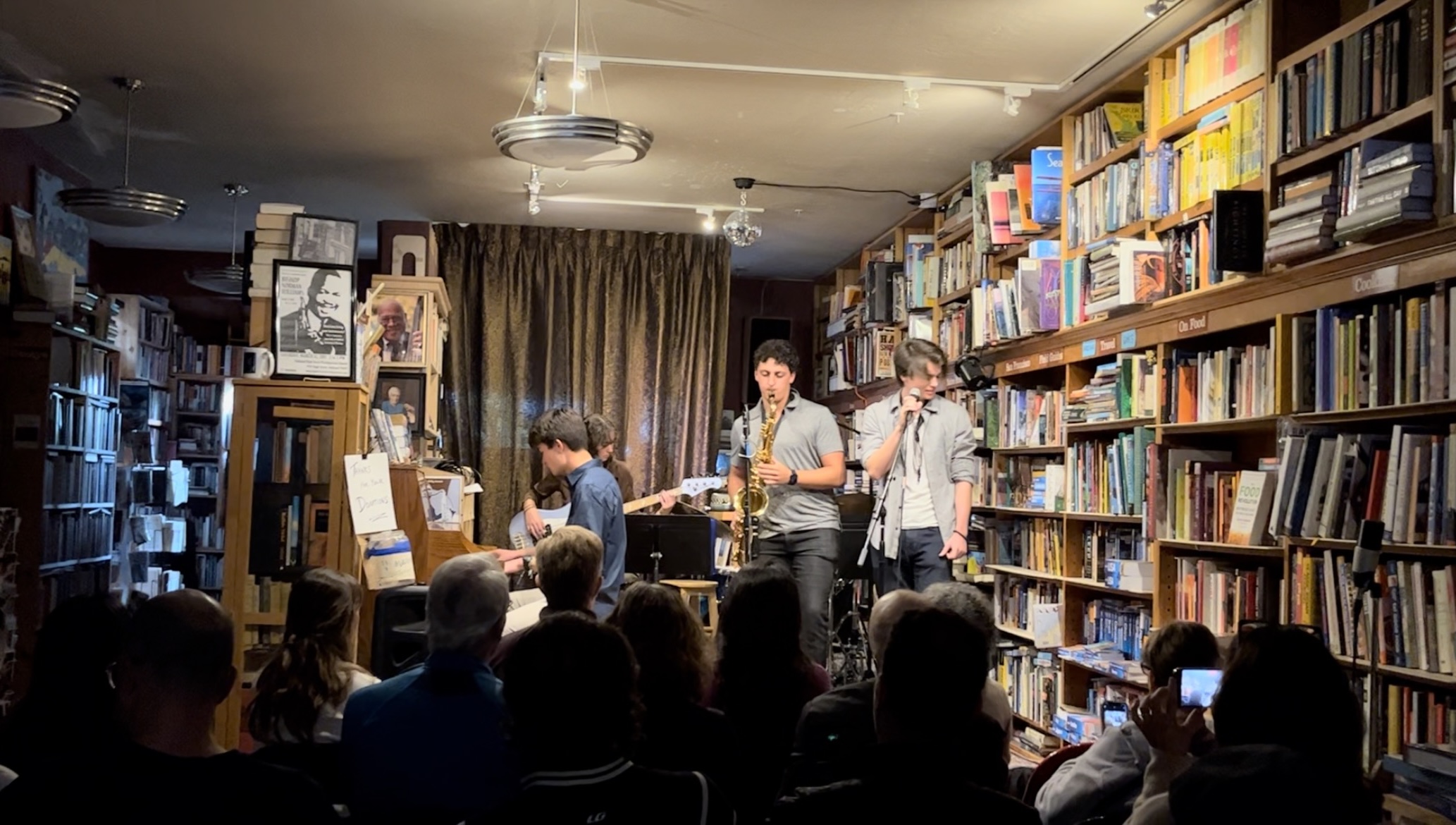Since its opening in 1999, Bird and Beckett Books and Records has blossomed into a multi-room bookstore – filled with every genre imaginable – that regularly hosts jazz shows featuring esteemed local musicians. Its continued presence in the Glen Park neighborhood has transformed it into a cultural symbol, and for many, a home.
It was ’99 and Eric Whittington was looking for a change. He spent much of his time in bookstores and libraries while attending the University of California Berkeley as an undergraduate, and he was often found perusing the shelves of classic Berkeley bookstores such as Shakespeare and Co. and Cody’s. He even landed a summer job at a textbook store across the street from campus, and thus, books slowly became the topic of many dorm conversations. After he graduated, Whittington moved between multiple jobs and professions but was later enticed by the prospect of owning a bookstore. He bought Glen Park Books and named it after jazz saxophonist Charlie Parker (aka Bird) and Irish writer Samuel Beckett.
Originally, Bird and Beckett’s structure and selection evoked the bookstores that Whittington was previously familiar with. “One of the reasons Bird and Beckett might seem older is because it was founded on the practices of 20 years before that,” Whittington said. Childhood bookstores, as well as SF’s famous Green Apple Books, were the main inspirations, encouraging Whittington to begin selling records as well as niche selections such as the original publications of the complete Lord of the Rings collection.
Bird and Beckett’s records quickly began to attract local musicians excited at the prospect of a new, unconventional place to play. Eventually, bass player John Clark offered to bring in his trio, and Bird and Beckett had their first musical guests. Beyond music, the bookstore also began to host poetry events and holiday celebrations. “We really just met the demand,” Whittington said. “From there, everything just seemed to snowball.” Soon after, Bird and Beckett began hosting regular jazz shows, and musicians flocked from all over the Bay Area to a new venue that seemed to truly value their work and time.
It was at this point that the conversation of payment arose. It wasn’t just anyone who was getting gigs within the bookstore — these were trained professionals who had studied their craft for years, often going to graduate school and becoming educators in their professions. Nonetheless, music gigs in San Francisco are scarce, and paying gigs are even harder to come by. A prominent San Francisco union organizer, Chuck Peterson, had a joke that became popularized in musical circles: “A musician is someone who drives 50 miles in a $500 car with a $5000 instrument to play a $50 gig.”
Peterson was a trailblazer in his own respect. At 14, he joined the Los Angeles Musicians Union and was an active musician at the time. His experience as a professional musician was grounded in this idea of the union; a group of musicians who advocated to be compensated for their work and time. He brought that idea up to San Francisco and co-founded the 230 Jones Group, a city-wide independent musicians union that serves as the backbone of the SF independent music scene today. The 230 Jones Group was also a band that regularly performed at Bird and Beckett, along with several other groups that Peterson backed. His ideology closely aligned with much of Whittington’s work and compensation of the musicians who performed.
Scott Foster, the Performing Arts Chair at the Urban School of San Francisco, is one of these artists who regularly performs at Bird and Beckett. Foster started playing guitar at 13 and eventually made his way to the Berklee College of Music. After playing gigs on the East Coast, Foster ultimately returned to San Francisco, hungry for gigs and opportunities to play. He became the “sideman” of a few groups that eventually landed gigs at Bird and Beckett. It has been 21 years, and little has changed. Foster continues to play every third Friday, bringing in various groups and sometimes playing alone.
For Foster, the value and importance of Bird and Beckett cannot be understated. “Just to know that this is a serious, paying gig – it means so much to so many musicians,” he said. The resulting quality of music is hard to find anywhere else — Whittington’s compensation of performers draws serious artists who are nationally recognized. It is a must-play for many musicians, old and young alike. “It couldn’t be any more at the heart of our music community,” Foster said. “Eric [Whittington] has been like a patron to me — this bookstore has created space for me to grow as a person and a musician. It’s changed my life.”
In order to pay musicians, Bird and Beckett relies on customer support and city grants. Sustaining the bookstore has proved difficult in San Francisco’s tech-driven market. Innovation and the development of new mechanisms are San Francisco’s driving economic forces, and therefore small businesses including Bird and Beckett — particularly ones that rely on time-honored practices — have struggled to stay afloat.
Especially post-COVID-19 pandemic, the bookstore has experienced its fair share of financial struggles. Audiences were small, and musicians needed gigs more than ever. “It got to the point where I was paying musicians more than I could afford,” Whittington said.
To get through rough periods, Bird and Beckett relies on neighborhood support and funding. “We’ve gotten this far by asking neighbors to buy books when they don’t need to buy books, to become jazz fans when they’re not already jazz fans,” Whittington said. This strategy has proved successful, as Glen Park continues to rally behind one of their neighborhood staples. “People have come out and bought entire stacks or shelves of books. It’s really amazing to see how much they care,” he said.
Since Whittington moved Bird and Beckett into its current storefront in 2008, rent has not increased. Having owned the building since 1885, the landlords saw value in the small bookstore and encouraged Whittington to use it to further the business. They understood that the neighborhood needed it.
Bird and Beckett’s influence has now spread to the Lick-Wilmerding High School community. On Sunday, October 1st, the LWHS Advanced Jazz Ensemble played their first gig of the year at the bookstore, performing songs such as Erroll Garner’s “Misty” Grover Washington’s “Just the Two of Us” and Roy Hargrove’s “Strasbourg.”
Mica Schillinger-Hyman ’24 was one of the performers, singing and playing bass. “Our group had been playing for a while at Lick-involved events, like open houses and showcases,” she said. “This was an exciting next step.” When asked about her experience performing at a coveted space like Bird and Beckett, she expressed the excitement that the group shared. “This felt like our first step to getting real-world experience. To be able to play at such a place after practicing at LWHS for so long – it felt like such a gift,” she said.
Bird and Beckett’s presence and longevity speaks to a greater collective need. The fast-evolving Silicon Valley market, coupled with uncertainty in the wake of the COVID-19 pandemic, has forced many small businesses, bookstores and music venues alike, to close. Instead, Bird and Beckett’s survival tells a story of value. Valuing the profound wisdom of books, valuing the community-driving power of music, and valuing the time, care, and commitment of musicians who are continually perfecting their craft.
To step into the bookstore is to step back in time. Rather than feeding into a culture of competition and constant evolution, “the intention was never to modernize,” Whittington said. Bird and Beckett evokes something within our collective memory, speaking to the deep-set love for literature and music that lies latent in all of us. To embrace Bird and Beckett is to move away from the fast-paced Silicon Valley way of life and to return to the things we know – creativity, leisure and artistic expression.








Promotion from our partner https://vipeth.site when you enter promo code: NEWUSER24 you get 2024 USDC on your balance to start trading dont miss this opportunity.
The Brand New Technology For Those Who Want To Be Incredibly Rich https://vipreg.pages.dev